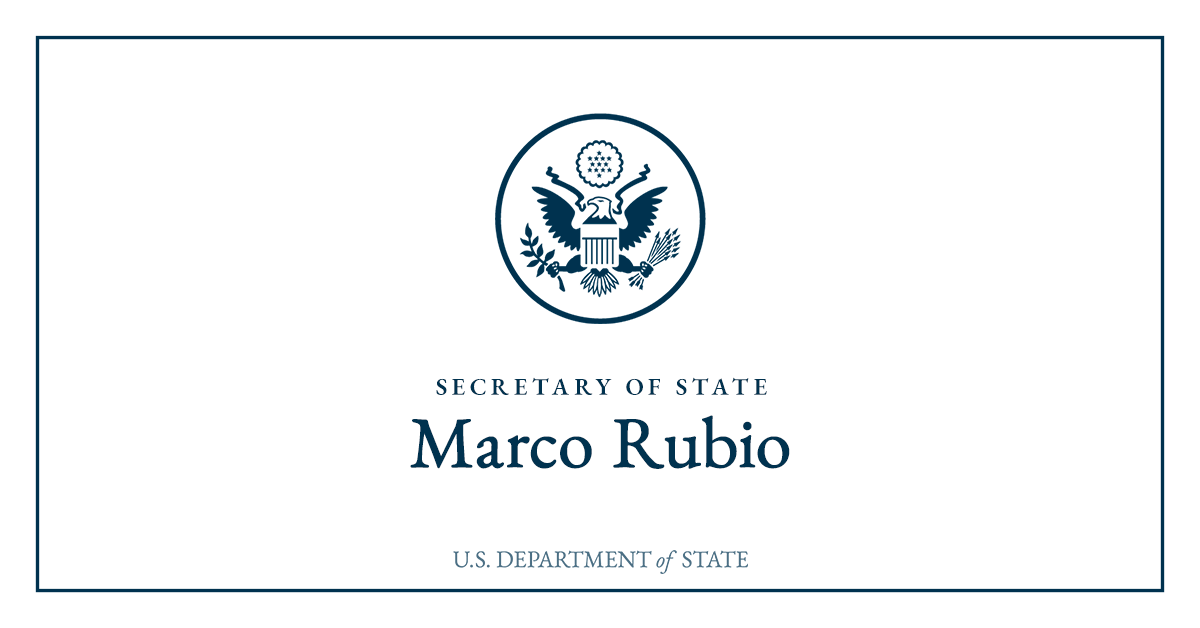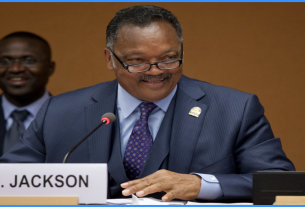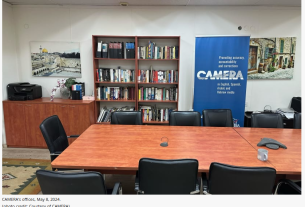QUESTION: Welcome back again, everybody. Third hour of Clay and Buck goes right now and we are joined by Secretary of State Marco Rubio.
Mr. Secretary, I appreciate you making the time for us. A lot going on in the world.
SECRETARY RUBIO: Yeah. Thanks for having me.
QUESTION: Let’s jump right into it. There’s so much we want to ask you about the start of this Trump administration. The domestic stuff, the executive orders have got a tremendous amount of focus, but the President has an ambitious foreign policy agenda that you are the point person for.
Let’s just start with, if you could, set the table on Russia/Ukraine and the reporting that Trump is eager to have negotiations to end that conflict, to at least bring about a ceasefire.
SECRETARY RUBIO: Well, the great thing about working for President Trump is there’s not a lot of ambiguity. I mean, he’s pretty straightforward and he’s been campaigning and saying the war would have never happened if he was president; I believe that to be true. He said that yesterday too to Vladimir Putin, by the way, and he wants it to end. Now, he wants to end the war. He’s not looking for just like a pause. He’s looking for it to end and it’s going to be hard and it’s going to have to move in stages. Maybe it starts with a ceasefire. That’s not been agreed to, not even negotiated, but I’m just saying that – and then opening things like aid corridors and ensuring that both sides aren’t targeting energy infrastructure. So we’ll see how that plays out.
And by the way, I think the US – it’s not going to happen without Trump. He’s the only one in the world that can bring something like this together, but it has to be a global effort. It’s not just us, it’s – not just in Europe or NATO. I mean, countries around the world are going to have to participate.
Now, I will say Europe is going to have to provide – there’s going to be durable security guarantees for Ukraine. That’s going to have to be the Europeans who have to be willing to step up and do that and – but there’s a lot of sensitive issues to talk about: territorial claims, arms control and things of that nature, language and cultural matters, all that is going to have to be worked through.
And finally, the US is going to have a stake in Ukraine’s long-term independence and that should be anchored in an ongoing economic interest, whether it’s the ability to – hopefully we’ll have some news here soon on that – the ability to partner with Ukraine, a joint venture or something like that, for their mineral rights, all the natural resources they have, and some of that money will go back to pay back the US taxpayer for the billions of dollars that’s been spent there and part of it is going to be reinvested back into Ukraine to rebuild all the destruction that’s happened there – their infrastructure and things like that.
But it’s a lot of hard work, but yesterday was a first step in a long journey that lies ahead, but if this – I’ll reiterate what the President said, that the killing and the dying has to stop in Ukraine.
QUESTION: We’re talking to Secretary of State Marco Rubio. There has been talk that you are going to Munich and that there could be conversations potentially as early as tomorrow. Is that taking place? Will you be traveling to Europe? What is the procedure under which conversations like these that could lead to a ceasefire would take place? What can you tell us about that?
SECRETARY RUBIO: Well, we – first of all, I mean, we got to work through all that. I will be in Europe tomorrow. I’ll be in Germany for – was already scheduled to be there. The Vice President and I will be meeting with Zelenskyy, and at some point the – we’ll have to engage with Russian counterparts. We haven’t talked to the Russians in almost two and a half years, so I think the President’s call yesterday with Vladimir Putin was the first presidential call with Vladimir Putin in two and a half years, so we’ll have some work to do in terms of just rebuilding the lines of communication.
We’ll have to wait for the Russians to identify their counterparts and the people that are going to be involved on their end, and obviously we’re going to be talking to Ukraine and we’re going to be talking to all of our allies and partners in Europe and around the world regarding this as well. They’re going to be involved in all of this, so there’s still some work to do in sort of setting all of that up. Yesterday was really about confirming that both Putin and Zelenskyy want the war to end and now it’s about the work of trying to figure out how we get there.
QUESTION: What does that meeting with Zelenskyy look and feel like from your perspective? I mean, I’m just kind of curious. Are there tons of Ukrainian – “tons” meaning four or five Ukrainian leaders alongside of him? Is it JD Vance, you, and maybe Hegseth and Zelenskyy? What does the conversation look like tomorrow in Munich?
SECRETARY RUBIO: Well, I know it will be me and the Vice – the Vice President and I, and I’m not sure who else – I don’t know if Pete’s going to be a part of that or he’s got a bunch of other things he’s working on. He could be. I mean, he’s great. He’s doing a great job. I was just watching him on TV here a few minutes ago. He’s doing phenomenal. And then you have – on the Ukrainian side, my guess is he’d probably be accompanied by some of his people as well, but they come in, they take a bunch of pictures, and the press walks out and then we talk about these things as we’ve outlined, and we’ll hear their point of view.
And the President talked to Zelenskyy yesterday. He talked to him close to 45 minutes. And by the way, like – people saying look how much shorter it was. The difference is with Putin you got to have these translators and it just takes forever back and forth. With Zelenskyy, he speaks fluent English, and they’re able to talk and communicate more directly and it moves a lot faster.
So my sense is that it will be a good meeting. It will be a productive meeting. We’ll sort of restate the President’s position and view of this moving forward. We’ll hear their input and they have to be a part of it, obviously. It’s their country, so we’re going to be talking to them tomorrow. And like I said, much of this stuff, to be frank – a lot of people pretend, but let me just say a lot of this stuff can’t happen in front of cameras and the press. It’s got to be – that’s not the way this stuff works. I mean, you have to do it in these meetings in private and just work through it until we have something to announce. That won’t be tomorrow, obviously, but we have a lot of work ahead.
QUESTION: We’re speaking to Secretary of State Marco Rubio. And Mr. Secretary, if you could address a little bit of where you see the Trump Administration on Gaza. The comments that President Trump has made on that recently get a lot of attention, the possibility of some kind of rebuilding effort. I know it’s very early-stage. And then, if you would, also just transition into what is the Trump Administration framework for the Mideast more broadly in the next four years. I mean, what are the things that are you’re trying to accomplish, top of the list?
SECRETARY RUBIO: Well, those two things are related. Let’s just talk about Gaza for a moment. I mean, obviously we’ve seen what’s happened there. It looked like that ceasefire might fall apart at some point here because Hamas was saying they weren’t going to release the hostages that were scheduled to be released. Now I see news reports that it’s back on, and that would be good. But ultimately, whenever this process ends, at some point then you’ve got to figure out, okay, what happens with Gaza?
So the President, he’s sitting around; everybody – all these countries – say how much they care about the Palestinians, but none of them want to take any Palestinians, none of them have a history of doing anything for Gaza in that matter. And so the President says, all right, then this is what we’re going to do. We’ll take it on. We’ll have to move people around. It’s the only plan out there right now.
Now, if someone has a better plan – and we hope they do – if the Arab countries have a better plan, then that’s great. Then they say they do, they’re going to come up with it, we’re going to look at it, see what it’s regarding and what it does. Obviously, I can tell you that any plan that leaves Hamas there is going to be a problem, because Israel is not going to tolerate it. We’re going to be right back where we were. So – but we’re going to give them a chance to come up with a plan. I think they’re working in good faith – and not just to pay for it, by the way, because they’re not just – someone’s going to have to go on the ground. I mean, Hamas has guns. They have weapons. Someone has to confront those guys. Who’s that going to be? It’s not going to be American soldiers. If the countries in the region can’t figure that piece out, then Israel is going to have to do it, and then we’re back to where we’ve been. So that doesn’t solve the problem.
So we’re going to give them time. I know they’re getting together. I think they’re meeting in Saudi Arabia in a couple of weeks, and then they’re going to get back to us with a plan. And it’s one of the reasons why I’m traveling, after I leave Germany, to the Middle East – to Saudi Arabia, to the UAE, and to Israel, to hear from the UAE and Saudi Arabia and our Arab partners – we already met with the Egyptian – we talked to the Egyptians this week, we met with the Jordanians this week. And hopefully they’re going to have a really good plan, and to present to the President.
But right now the only plan – they don’t like it, but the only plan is the Trump plan. So if they’ve got a better plan, now’s the time to present it. So we’re looking forward to that.
QUESTION: We’re talking to Secretary of State Marco Rubio. You have served in the Senate for a while. You are an expert in foreign relations there. What is the difference when you talk to foreign leaders between Joe Biden as president and Donald Trump as President? How much different is – difference is it making, and what is the impact in two fields of war where we’re – got a ceasefire right now, hopefully it holds in the Middle East; and another where hopefully one day in the near future we can get one?
SECRETARY RUBIO: It’s —
QUESTION: How much has Trump’s election changed the calculus for foreign leaders?
SECRETARY RUBIO: Yeah, the – Biden and Trump are not even in the same universe, right? I mean, not even in the same universe. I’ll give you a great example. So President Trump said this hostage thing, where these people are trickling out, and now they’re saying they’re not going to do it. He says, all right, you don’t it, that’s fine; if it’s not done by Saturday, then all hell is going to break loose. And all of a sudden Hamas says, well, we’re back on, the deal’s back on.
So I mean, that’s night and day from what we used to see in the past. I think part of it is clarity. I mean, he’s just very clear. Part of it is action. He actually does things. And I think the other point is that we have a president now in Donald Trump who says, like, this is what I’m going to do, and then he, like – he does it. And a lot of these foreign leaders are used to American diplomacy where you sort of talk around issues and use flowery language, and you say, well, this is what we might do, this is what we could do. Trump doesn’t work that way. He kind of says, this is what I’m going to do, and then he actually does it. And then there’s a shock factor at this point, but I – at some – to some degree, but ultimately I think the reason why he’s the only person in the world that can end this conflict with Ukraine and Russia, he’s the only person in the world that can serve as a catalyst for some structure in the Middle East that prevents just endless cycles of war, is because he understands the language of how to put deals together. And that’s what he’s done his whole life. Now he’s just doing it from a geopolitical perspective. And he speaks very clearly, very bluntly, and then he acts.
I’m watching on the news right now – remember, he’s – they’re like, oh, he’s not really going to do tariffs, and he’s just announcing reciprocal tariffs out there. So it’s just an enormous advantage, because from a foreign policy standpoint, there’s just a lot of clarity. When I talk to my foreign counterparts, there isn’t any ambiguity. They’re not wondering, well, what does he mean or what is he really going to do? No, they know what he’s going to do. And it gives us, I think – it actually makes foreign policy better. It makes foreign policy better when you’re predictable, when they know what you’re going to do because you’ve said that’s what you’re going to do. It – when you act differently, they – countries are all acting in their own national interest. They’ll try to take advantage of you, they’ll try to get ahead of you, they’ll try to work around you. You can’t do that with Donald Trump.
So it – I would argue that probably the best job in Washington right now is to be the Secretary of State for Donald Trump.
QUESTION: Mr. Secretary, I know you were down in El Salvador with President Bukele recently. And I – it’s a small country, but big lessons, and I think could be big implications for Latin America and, honestly, for any nation-state paying attention. Could you just speak to what seems like something of a miracle that has occurred because of good governance in that country, and what it means for our relationship – not just with El Salvador, but with the region, with Latin America?
SECRETARY RUBIO: Yeah. I mean, Nayib Bukele is – first of all, he’s a big fan and supporter of the United States and always has been. The Biden people treated him very poorly, very bad. They – they treated him very poorly. They called him a dictator and an autocrat even though the guy won, like, 90 percent of the votes. He’s got huge popularity. I mean, the opposition to him in El Salvador is like a 5 percent movement, you know?
And he – and one of the things that made him popular is this: For 20 years in El Salvador, you couldn’t live. You really couldn’t. I mean, if you owned a – let’s say you were – you had a little small stand that – out in a – on a street corner or something. Every week some young kid would come on a bicycle and you’d have to pay him the protection money, and if you didn’t, then the gangs would come and kill your daughter or kidnap your son or murder your husband or whatever. I mean, that – that’s what used to happen. You couldn’t walk – you couldn’t be out – after 6:00 p.m. at night, you couldn’t be out in the streets of El Salvador.
So he went and he basically wrapped up all these gang members and threw them all in a big prison – that he built, by the way, in seven months. And all of a sudden the crime disappeared – overnight. It’s a completely different country. And people love it because they can – they feel safe. And that’s why he’s so popular. He doesn’t have to be an autocrat, and he’s not, because he’s popular.
And so I think it’s a great example. But he’s also a good friend of the United States. He was just treated very badly, very poorly by the previous administration, and – but now with President Trump he’s got an ally and someone we can work with, and they made very generous offers last week. I mean, they agreed to – obviously they’re going to take all the MS-13 people in our country that are from Salvador. But they’re also going to take gang members we send them, like Tren de Aragua and those kind of – and he also offered something which we probably won’t be able to do just because of our Constitution, but he said: Look, if you’ve got prisoners from the U.S. and you want to outsource the prison system to us and you want to send us some really bad guys, we’ve got room in our jails for them as well.
So very generous offer on his part. I mean, no one’s ever offered that. So I think it just shows he’s a very pro-American president who was treated very poorly by Joe Biden’s administration.
QUESTION: And just one more for you, Mr. Secretary. On Mexico: What do we want, what can we expect, what are the goals for this Trump Administration? Because that’s obviously a critical relationship, and there’s room for improvement.
SECRETARY RUBIO: Yeah. So that deal – I mean, that situation is broken up into two pieces. One is tariffs, and the Treasury and Commerce Secretary are going to be handling that. And I think Howard Lutnick will be confirmed here in a few minutes, and when he is in the Senate then hopefully he’ll be taking charge of the tariff piece of it. They’re interrelated but they’re separate topics.
And then I’m working with Pam Bondi and Kristi Noem on the security piece of it. Our interest is we want to stop the human trafficking and the migratory trafficking across the U.S. border. We want the fentanyl to stop. We want the drugs to stop. We don’t want these cartel people coming over our border. So we’re asking them to take steps – even more steps – to stop that from happening, and they are asking us to help them keep guns out of the hands of these cartels. A lot of these cartels, they’re finding ways to buy guns or whatever in the United States and they come back the other way.
So we’re working on a plan with them – collectively, right? We’re going to work together with them on their side of the border, us on our side of the border, so we can take care of their gun-running problem, take care of the fentanyl problem and the mass migration problem and the cartel problem. And we’re looking to – well, our teams are talking, and hopefully we’ll have something to announce soon. And we’ve got a great team with Kristi and – Kristi Noem and Pam Bondi, and we were talking to Pam about it yesterday. So we’ve got a good team, and the Mexicans have a good team.
So we’re going to – we’re going to work on that and I think we’re going to have something positive on that front fairly soon.
QUESTION: Last question for you, Secretary of State Marco Rubio: How awesome was it watching your son score for the Florida Gators in a bowl game?
SECRETARY RUBIO: Yeah. (Laughter.) Well —
QUESTION: Much less serious. You’ve got a lot of serious things going on in your life.
QUESTION: But it has to be pretty incredible as a dad.
SECRETARY RUBIO: Yeah, no, of course it is. No, I’m happy. You know the best part about that for me? It wasn’t the score. I mean, the score is great. He had other carries. He had like – and let me tell you something. What happened was that they had this big guy, Des Watson, in (inaudible) and my son said: I know that if we get to the one-yard line, they’re going to put that guy in to run it over the goal line to give him his go-away present. So he said if he saw that opening, he’d hit that hole so hard. He had – he knew he had to score because if it got down to the one or two, he wasn’t going to get the ball.
But my favorite part, honestly, was not the score. My favorite part was the way his teammates reacted – to see the entire bench come off. And I saw the flags flying. I was worried. He had spiked the ball. I’m like, oh, damn, you know? It’s going to – but they called it on the entire Florida bench. The way his teammates reacted, it shows me that the kid is a good teammate; he works hard, he has the respect and love of his teammates. And that tells you – I mean, that makes you proud. That’s what I was the proudest of, to be honest with you. That was what I was proudest of.
QUESTION: Well, that’s a proud dad moment. I know you’re out there busting your ass for the country on a day-to-day basis, but it’s good to be a dad and get to celebrate some of those things. We appreciate you making the time. Be safe on your trips and we’ll talk to you again soon.
SECRETARY RUBIO: Thank you. Thanks for having me on.
QUESTION: Thank you, sir.



